Abstract
The Iberian Peninsula is a mountainous region in Europe located in the present days in Spain and Portugal. Muslims recognized this region as Andalusia. Gibraltar channel had separated Europe and Africa on the southern side of this peninsula. Different power rules this land in multiple periods of history. In the medieval period, this area is governed by Muslims for around 700 years. In this article, I have concentrated on social development in the Iberian Peninsula civilization, a significant change in education, architecture, literature, economy, and philosophy.
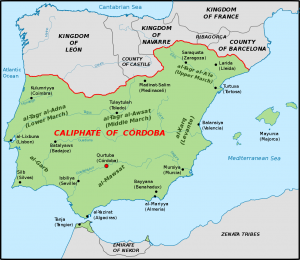
Before the arrival of Muslims, Spain was under the control of the Visigothic kingdom. They were the Germanic rulers of this area and the successor kingdom of the western Roman empire. The feudal lords vastly dominated society. The Latifundia (Ruling Class) and the subject class were the main class of the community. Latifundia controlled the most social activity and took advantage of their privileged position. They were exempt from the taxation system. Roman Catholicism was their primary religious faith. They had an intolerance behavior toward other beliefs. They litigated the Jewish community heavily. From 616 to 620 CE, the leading society forcibly converted around 90000 Jewish to Christian. They sold Jewish people as a slave and forbidden the marriage within their community. At this time, the political administration was loosely attached, and provinces were almost independent. Political conditions were unstable; King Roderick killed the previous King Witiza for coming into power (Mark, 2019). King Roderick dishonored Count Julin, a provincial governor, and son in law of Witiza. He was excavating the opportunity of taking revenge against the King. He decided to help Muslims.
Muslims’ Caliphate was under the supervision of the Umayyad dynasty at the beginning of the eighth century. The fundamental policies of this dynasty were spreading Islam and conquering a new land. In 711, Caliph Al Walid I approved the Iberian Peninsula invasion and gave his order to the governor of Magreb Musa bin Nusayer. He sent Tariq bin Ziyad with 12000 Berber dominated forces and crossed the sea with four merchant vessels provided by Julian. In the wadi lakko, Muslim forces faced King Roderick, where he gathered 100000 troops from the feudal auxiliary. The Muslims fought a furious battle that was continuing seven days and routed the Gothic Army completely. King Roderick was drowned in the river. Then, the Muslim forces marched toward the capital, Toledo, and captured the city without significant resistance. Then, Musa bin Nusayer joined with Tariq bin Ziyad combination with 18000 troops for the campaign and conquered most parts of Spain within two years. Then, Musa bin Nusayer left Spain and appointed his son as the governor (Ahmed, n.d.). After that, the political condition was unstable, and a different ruler resigned from this area until 756 AD.
Read More- Jerusalem: A Boiling Pot Ready to Spill Over
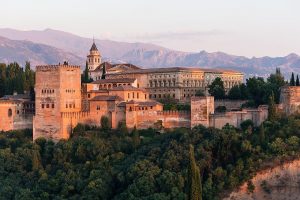
In 750, the Abbasid dynasty took over the control caliphate and killed most members of the Umayyad dynasty. Abd Al Rahman I, grandson of Caliph Hisham, escaped and reached Spain, assisted by the Moroccan Berber tribe that belonged to his mother. Soon, he took control of the power and established an independent emirate in Spain. It was formally the beginning of a full Muslim reign in Spain. Muslims strongly dominated this region until the 14th century.
The Muslim period in the history of the Iberian Peninsula is often described as a golden age. Here, three great monotheistic religions faith (Islam, Jewish and, Cristian) had integrated. They built a liberal society in the Iberian Peninsula and broke the previous social structure. They created an equal opportunity for all the citizen in their territory. This period was also known as creating a knowledge-based society comparable with the Roman Empire and Italian Renaissance.
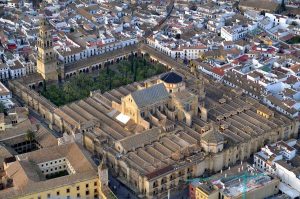
Muslim rulers heavily patronized art, culture, and literature. They established colleges, libraries, and public baths. Literature, poetry, and architecture also flourished with the contribution of Muslim and Non-Muslim. It was a period of religious tolerance. They established a new taxation system and abolished slavery in society. Umayyad built and developed their Spanish capital in Cordoba. It had proper town planning and well-structured town development (Muslim Spain, 2009). Umayyad brought their architecture from Arab, integrated it with the Spanish architecture, and built a new architectural style, “Moorish architecture.” Grand Mosque of Cordoba and Alhambra Palace were the great symbol of Moorish architecture.
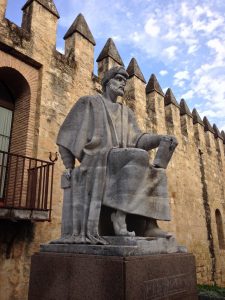
Ibn Rushd was the notable philosopher of Muslim Spain. He had a significant contribution to mathematics, physics, medicine, and Islam law interpreter. He was the author of more than a hundred books. In Spain, Muslims were connected to ancient knowledge from greek civilization and created a new school of wisdom (The Science in Muslim Spain, 2008). In this way, Muslim rulers heavily developed Spanish society.
Md. Rony Hasan Undergraduate Student North South University Email: [email protected]
Bibliography
- Mark, J. (2019, September 16). Visigoth. Ancient History Encyclopedia. The United Kingdom. Retrieve from https://www.ancient.eu/visigoth/
- Ahmed, N. ( n.d.). The Conquest of Spain. History of Islam. Retrieve from https://historyofislam.com/contents/the-age-of-faith/the-conquest-of-spain/
- Muslim Spain (711-1492). ( 2009, September 4). BBC. London. The United Kingdom. Retrieve from https://www.bbc.co.uk/religion/religions/islam/history/spain_1.shtml
- Transfer of Knowledge and Culture. (n.d.). Islamic Spain Tv. Retrieve from https://www.islamicspain.tv/the-science-and-culture-of-islamic-spain/transfer-of-knowledge-and-culture/
- The Science in Muslim Spain. (2008, February 11). FUNDACIÓN DE CULTURA ISLÁMICA. Spain. Retrieve from https://funci.org/science-in-muslim-spain/?lang=en
- Abd al-Raḥmān I (n.d.). Britannica. The United Kingdom. Retrieve from https://www.britannica.com/biography/Abd-al-Rahman-I
ʿ
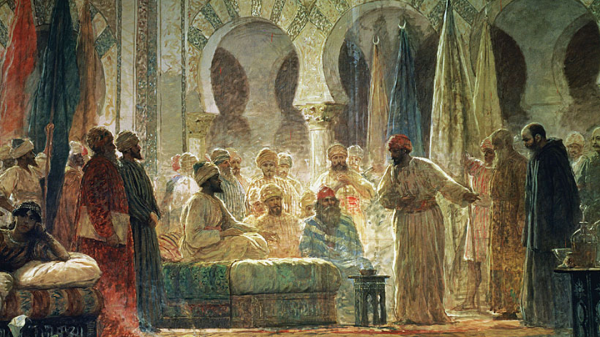
I know additional ideas that negate this. If I may?
I’m not sure where you are getting your information, but good topic. I needs to spend some time learning more or understanding more. Thanks for excellent info I was looking for this information for my mission.
Wow loads of superb knowledge. write opinion essay essays writers dissertation papers
Nice and interesting information and informative too.Can you please let me know the good attraction.
Really informative article.Really looking forward to read more. Really Great.
great submit, very informative. I’m wondering why the opposite experts of this sector don’t realize this. You should continue your writing. I’m confident, you’ve a huge readers’ base already!
It’s really a nice and helpful piece of information. I am happy that you just shared this helpful info with us.
Please keep us up to date like this. Thank you for sharing.
This is very fascinating, You are an overly skilled blogger.
I have joined your feed and sit up for searching for extra of your wonderful
post. Also, I’ve shared your site in my social networks